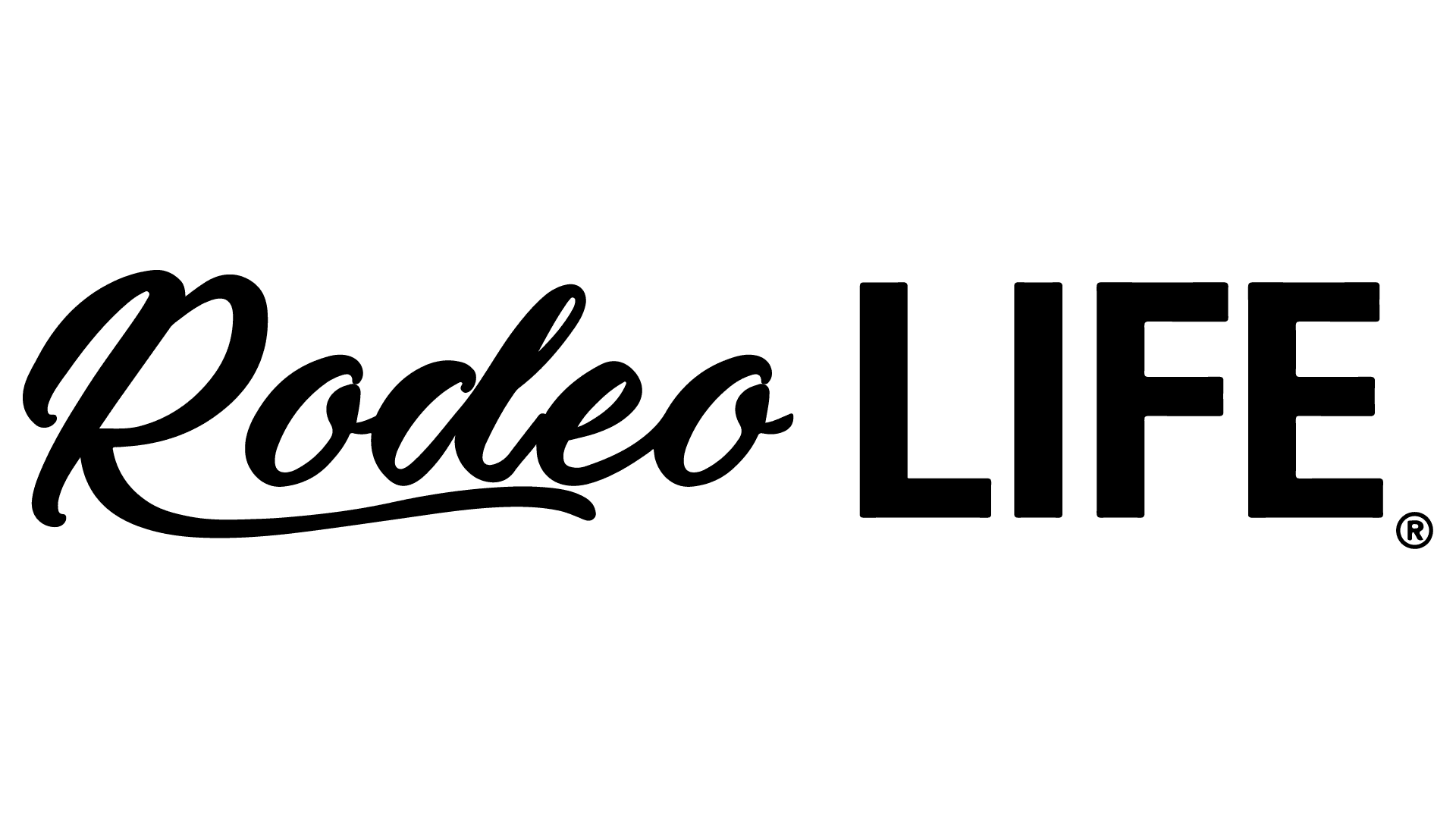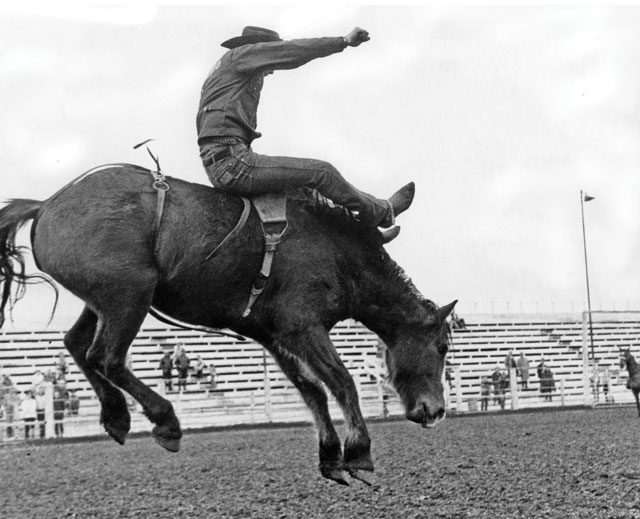If it wasn’t for Will James, John Gee might never have been a cowboy. The Montana man grew up reading the western books written by James, while he and his buddies dreamed of riding bucking horses and living the cowboy lifestyle, and Gee did just that.
Growing up in Delta, Ohio, on the west side of Toledo, John, also known as “Doc,” delivered newspapers to buy his first horse. “My father helped subsidize the horse,” Doc remembers. “I was nine or so.” Five years later he was at local county fairs and rodeos, riding bareback horses and bulls.
He and childhood friends Tom and Don Decker and their buddies traveled together to rodeos, and Decker remembers when they rode at a rodeo in Findlay, Ohio. “They had a horse that was pretty rank,” Tom Decker said. John got on him in the saddle bronc riding. “The horse threw him over his head the first jump and took him down the arena, kicking every jump. John was unconscious for a short while, and on the way home, he didn’t remember his ride.” On the way home, he came to. “He didn’t remember anything. We told him his ride was like a Will James book,” he laughs.
The boys were in training, Decker said. “We knew we’d have to be tough so we could become cowboys. We had to take cold freezing showers, to see who could stand in the shower longer.” The boys were daredevils on horseback, too. “”We’d ride this crazy horse down a gravel road, one-hundred miles an hour, bareback and double,” Decker said. “The horse was a renegade. John used to put the horse under the edge of the roof, and (the horse) would lift the rafter.”
After high school graduation in 1953, John headed west. His interest in agriculture took him to Colorado A&M (now Colorado State University), in part for the education, and in part for their rodeo team. When the team was chosen that fall, John was not on it. “I was pretty broken up about the deal,” he said. In those days, a person could compete on the team or individually, so John went to some rodeos by himself and won. He was working three events: the bareback riding, steer wrestling, and bull riding. That spring, he was chosen for the team. Being voted on the team was done partly for a person’s talent and partly for if they had wheels: “In those days, the team was picked by the people who were going to rodeo,” John says. “You put your name on the board, and the events you worked. And then each person who had their name up there got to vote. So you voted for somebody that had a car, you voted for yourself, and you voted for whoever you thought would be the best cowboys.”
With paying out-of-state tuition, John had to concern himself with entry fees. “You didn’t go many weeks without winning something unless you were subsidized in some way,” he said. His
dad, a truck driver, wasn’t paying his fees. “We weren’t that affluent.”
In 1954, his first year of college, the Colorado A&M team won the national championship, and John won the National Inter-Collegiate Rodeo Association’s Steer Wrestling title. In his sophomore year, he won second place, and his third year of college, he won the title again. The Colorado A&M rodeo athletes knew how to get lots of points. In those days, there were no college regions and students could compete anywhere in the nation, “so some of us would get in the car and go to a rodeo and get on other people’s horses,” John recalls. Fuel was a quarter a gallon. “One weekend, we had a team 30 miles from the New Mexico border, and a team 30 miles from the Canadian line.” Because they borrowed horses, they could travel easier. “The Texans, if there were six on a team, there were probably six outfits, because they all hauled their own horses. We had an advantage.”
After his first year of college, John switched his major from agriculture to animal husbandry. “Unless I married a rancher or inherited one, I couldn’t afford to be one.” After three years at Ft. Collins, he transferred to Ohio State to get his doctor of veterinary medicine degree.
He graduated from Ohio State in 1960 and immediately headed back west. Doc, as he would be better known by, got a job for a veterinarian in Great Falls. Three years later, he went out on his own, establishing his practice in Stanford, Montana.
And he kept rodeoing. He got his Rodeo Cowboys Association membership, predecessor to the Pro Rodeo Cowboys Association, in 1961. He worked all three events, never hitting the road full time due to his veterinary clinic, but going hard enough. Among his rodeos, he competed in Denver at the National Western Stock Show and Rodeo many years. He spent a few summers rodeoing in Ohio and back east. His practice never let him get too far from home.
He rode bulls until 1964, quitting because he had married. He rode bareback horses for another ten years, and steer wrestled till he was in his forties.
Doc’s wife, JoAnn Cremer always had an eye for horses, he said. She was the niece of well-known Montana stock contractor Leo Cremer, and grew up around rodeo. They met at a college rodeo in Bozeman. In her early years, she didn’t have a chance to rodeo, but after they married, she began running barrels. “She was a very good coach and fan,” Doc said. “She was always ready for the next good one,” eldest daughter Maria said. One year, Maria finished 17th in the Women’s Pro Rodeo Association barrel racing standings, missing qualification for the National Finals Rodeo by two places. JoAnn “laid a lot of groundwork” in getting Maria ranked in the top twenty, Doc said, even helping drive from rodeo to rodeo.
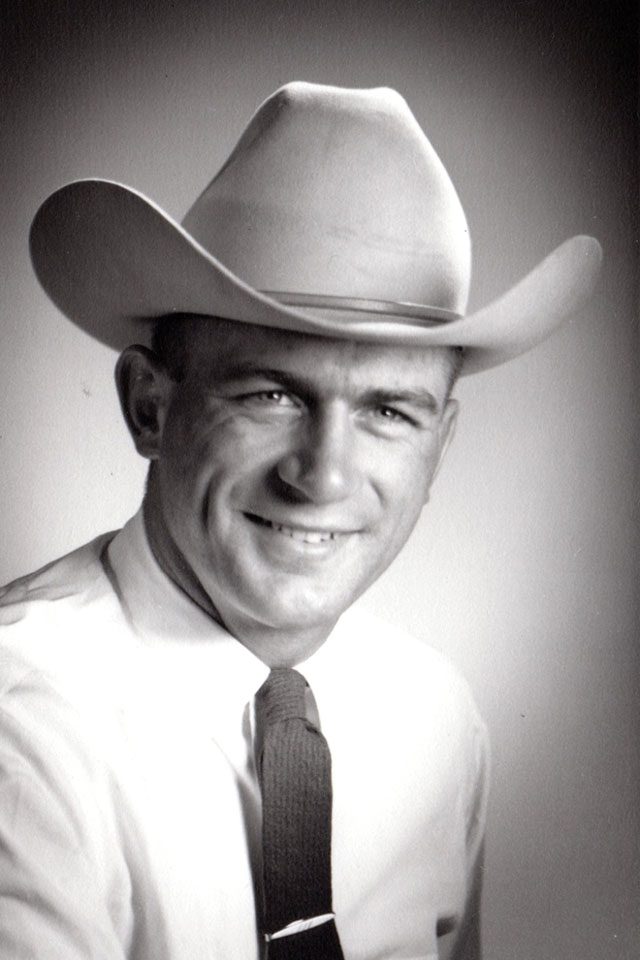
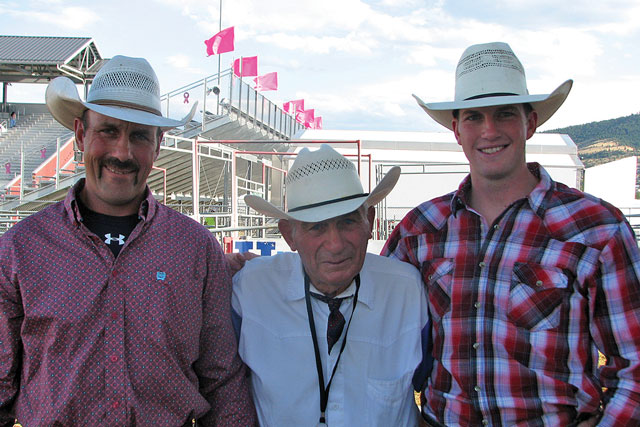
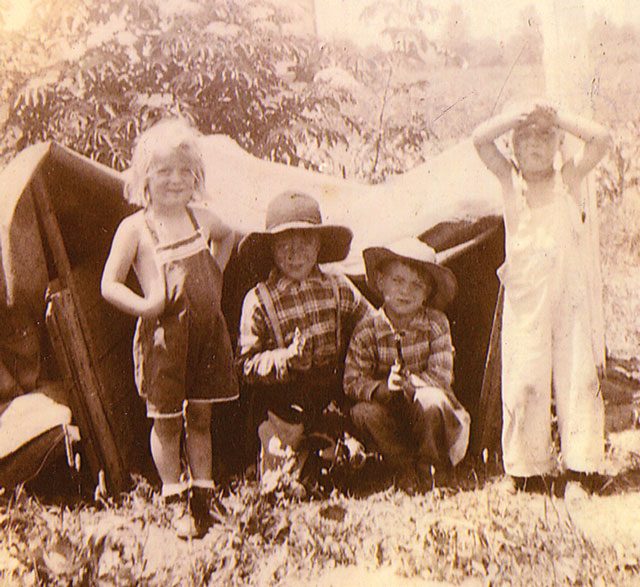
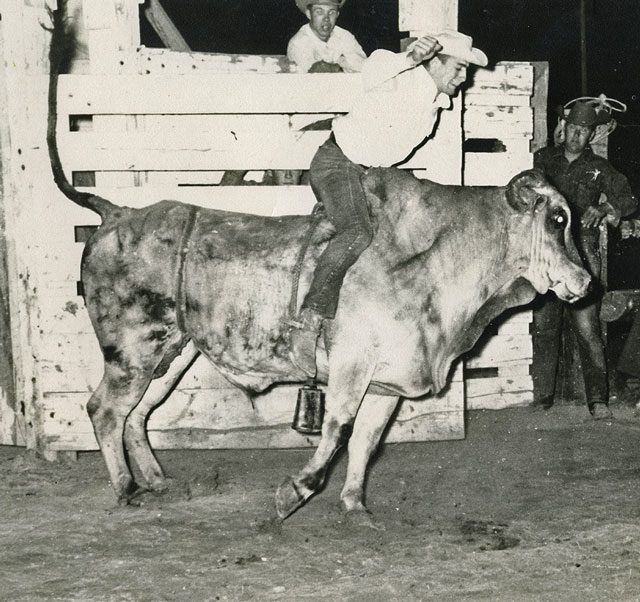
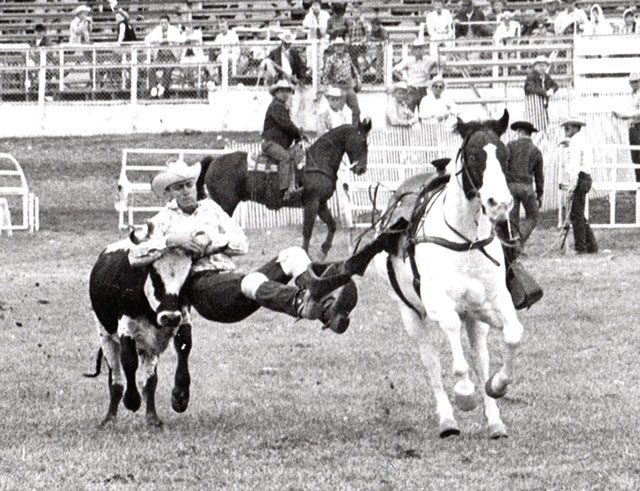
Doc was and still is humble about his accomplishments “Dad always said, “God first, family second, work and rodeo after that,” Maria said. His family reflected those values. John’s son, John J., finished in the top twenty in the PRCA steer wrestling standings three times. The third time, his family only realized it later. “That’s what my dad believed in,” Maria said. “You take care of other things first.”
After he finished PRCA rodeo, he spent several years competing in the National Senior Pro Rodeo Association. He loved to compete. “He was pretty fun to watch,” Maria said. “He still gets that competitor grit in his eye.”
He also judged PRCA and open rodeos, taking horses along that needed to be seasoned. “They usually figured he was the best bronc ride of the day,” Maria chuckled. He judged the open rodeo at Roy, Montana, for years.
Doc was part of the group that started the Stanford, Mont. pro rodeo in 1965. The Jaycees, of which he was a member, produced the rodeo, and Doc was instrumental in building the arena from scratch.
Last summer, he celebrated 50 years as veterinarian in the Judith Basin, Charles Russell Country in Montana. Childhood friend Tom Decker was on hand for the celebration. “We passed the mike around,” Decker said. “Everybody just loves him. He’s one of those kinds of people.” Decker, who served on the Board of Directors for the Russell Museum in Great Falls, kept in touch with Doc and his family. “He’s always been a hero of mine, and a mentor to me. His character is the finest. His Christian faith is what makes his character what it is.” Even on the rodeo trail, Doc went to church every Sunday. “If there was no ride, he walked,” Decker said. “He was razzed by a lot of his rodeo buddies about going to church.”
His clients in the vet business love him, too. “He’s adored in Montana,” Decker said. “The people of Montana dearly love him. He’s a wonderful human being, and his Christian values are the center of it.”
Doc and JoAnn had four children: John J., Leo, who passed away at age 19, Maria and Theresa. JoAnn passed away two years ago. At the age of 81, Doc still goes out and helps at his son’s feedlot and, if the phone rings for a call to doctor an animal, he answers. His grandkids continue the rodeo tradition. John, Jr.’s son, Luke, won the Montana Circuit bull riding title in 2014, and has qualified for the Montana Circuit Finals eight times: five in the bull riding and three in the steer wrestling.
Even though rodeo had its place behind his faith, his family and his work, Doc loved it. “The people we’ve met, they’re priceless. You can go practically anywhere and see people you know and enjoy. That part is especially, in my advanced age, the great part of it.” He also loves to see his son, John, and grandson, Luke, compete.
“This guy is a sensational human being, and I’m not the only one who thinks so,” Decker said.
